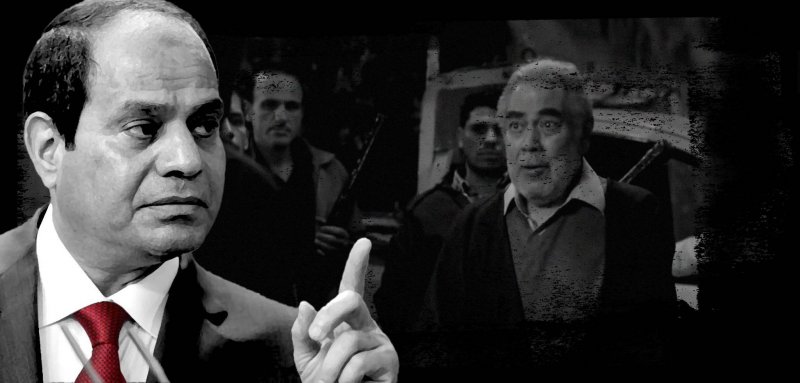Observers of Egyptian TV drama have noted a striking lack of diversity in the annual Ramadan television specials since the 2011 Revolution. With many local production companies stepping back from the scene, one particular company has risen to dominance, save for the period between 2011 and 2013, marked by a notable boldness in presentation.
In this analysis, we delved into Egyptian TV dramas spanning from 2011 to 2021 to examine the diversity of the market, the various players and producers, and the political stances, biases, and attitudes towards authority portrayed in each series based on its production date.
While the diversity of television genres has declined, a trend towards promoting state institutions and nationalistic narratives has emerged, raising questions about artistic freedom and societal representation.
We found a total of 270 TV series released over 10 Ramadan seasons, encompassing genres ranging from social and psychodrama to political, biographical, historical, comedy, feminist, fantasy, and police dramas. While the number of political series steadily declined from 2011 to 2021, there was a notable increase in series glorifying state institutions, particularly security entities.
The January Revolution: From Emergence to Fading
Despite occurring just a few months before the 2011 Ramadan season, the January Revolution inspired a number of series focused on the events leading up to it, including the repression by the state security apparatus. Standout hits of the 2011 season included "Adam", depicting the story of a young Egyptian tortured during President Hosni Mubarak's era, and "Khatem Suleiman" (Suleiman's Ring), which addressed political corruption and ended with the start of the revolution.
The 2011 season saw the release of 7 social series, 4 political series, 3 comedy series, and 3 biographical series.
The following year saw an increase in politically skewed TV series, along with a focus on the Revolution's aftermath, economic conditions, violations, and corruption. Prominent series included "El Horoub" (The Escapes), "Arafa El Bahr" (Arafa The Sea), "Okht Therese" (Sister Therese), "Hesham Abo Al-Makram," and "Al-Baltagy" (The Thug), which addressed various political movements and their ties to the Muslim Brotherhood.
There has been a shift in television production towards social dramas detached from politics and a rise in promotional and propaganda narratives favoring the regime.
2013 marked a diverse year with releases spanning social, political, comedy, detective, romance, biographical, and psychodrama genres. Notable series such as "Niran Sadeeka" (Friendly Fire), "Moga Harra" (HeatWave), "Bedoun Zikr Asma'" (Without Mentioning Names), and "El Da'eya" (The Preacher) tackled Islamic groups, political corruption, and the role of state institutions.
A new trend emerged in 2013 with the introduction of TV series centered on terrorist operations and bombings, continuing in subsequent years. Notable examples include "Al Walda Basha" (Mother Pacha) and "A'd Tanazoly" (Countdown) produced in 2014, and "Ras Al-Ghoul" (Head of the Demon), "The Caesar," and "Al-Tabbal" (The Drummer) in 2016.
Transition and Dominance
From 2014 onwards, political dramas dwindled, shifting focus from critiquing the post-revolutionary political system to highlighting flaws associated with the Muslim Brotherhood's rule. This transition coincided with the rise of nationalistic and patriotic dramas, aligning with President Abdel Fattah El-Sisi's tenure.
Ramadan TV dramas between 2014 and 2021 spotlighted terrorist operations while portraying security agencies as defenders rather than adversaries. Notable series included "Cairo: Kabul," produced by Synergy, which depicted the return of Islamist movements as a drawback of the revolution.
From 2014, political dramas dwindled, shifting focus from critiquing the post-revolutionary political system to highlighting flaws associated with the Muslim Brotherhood's rule. This coincided with the rise of nationalistic and patriotic dramas, aligning with President Abdel Fattah El-Sisi's tenure.
One prominent example is the series "Al Ekhteyar," which aimed to reshape the image of security officers, distancing themselves from previous portrayals of brutality.
Evolution of Synergy and Market Shifts
The rise of Synergy as a dominant production company coincided with the decline of others like Egyptian Media Production City and Mohamed Fawzy Films Company. The shift in production signaled a move towards social dramas detached from politics and a rise in promotional and propaganda narratives favoring the regime.
Notable Changes in Audience Portrayal
The shift in drama content suggests a deliberate move away from political critique towards presenting state officials as heroes. Critics argue that this trend limits storytelling possibilities and isolates societal issues from their political context.
The disappearance of certain shows, like "Ahl Eskendereya," underscores the industry's reluctance to critique authority figures.
Egyptian Ramadan TV dramas have undergone significant changes over the past decade, reflecting shifts in political dynamics and production influences. While the diversity of genres has declined, a trend towards promoting state institutions and nationalistic narratives has emerged, raising questions about artistic freedom and societal representation.
By examining these shifts, we gain insight into the evolving landscape of Egyptian television and the subtle influence of political forces on media content.
Raseef22 is a not for profit entity. Our focus is on quality journalism. Every contribution to the NasRaseef membership goes directly towards journalism production. We stand independent, not accepting corporate sponsorships, sponsored content or political funding.
Support our mission to keep Raseef22 available to all readers by clicking here!
Interested in writing with us? Check our pitch process here!





